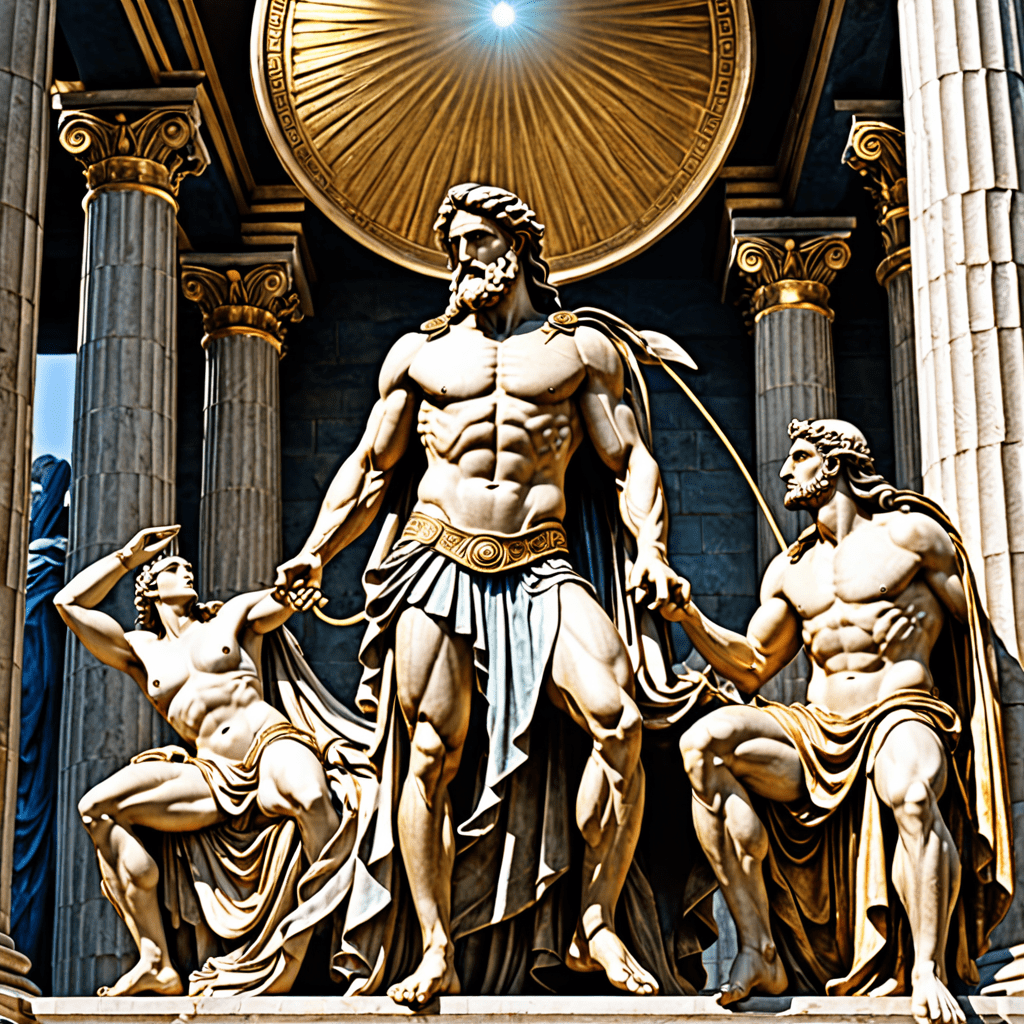Greek Mythology and Environmental Ethics
The Connection Between Greek Mythology and Environmental Ethics
Greek mythology, with its rich tapestry of stories about gods, goddesses, heroes, and mythical creatures, provides insightful narratives that often relate to environmental ethics. Throughout Greek mythology, nature is portrayed as a powerful force that commands respect and reverence, highlighting the interconnectedness between humans and the natural world. The themes of balance, harmony, and stewardship of the earth can be found in various myths, emphasizing the importance of living in harmony with nature.
Lessons from Greek Mythology for Modern Environmental Ethics
The tales of Greek mythology offer valuable lessons that resonate with modern environmental ethics. For example, the story of Gaia, the primordial goddess of the earth, symbolizes the concept of Earth as a living entity deserving of care and protection. The myth of Demeter, the goddess of agriculture, underscores the significance of sustainable farming practices and respect for the land. By exploring these myths and understanding their moral underpinnings, we can learn how to cultivate a deeper appreciation for the environment and engage in responsible environmental stewardship.
A New Perspective on Environmental Issues Through Greek Myths
Examining environmental challenges through the lens of Greek mythology can provide a fresh perspective on pressing issues such as climate change, deforestation, and pollution. The myth of Prometheus, who stole fire from the gods to benefit mankind but faced severe consequences, raises questions about the ethics of exploiting natural resources without considering the long-term consequences. By reflecting on these myths, we can re-evaluate our relationship with the environment and strive to uphold values of sustainability, conservation, and respect for all living beings.
The Role of Morality and Ethics in Greek Myths
Many Greek myths delve into themes of morality and ethics, highlighting the repercussions of human actions on the natural world. The legend of Narcissus, who fell in love with his own reflection and wasted away by a pool, serves as a cautionary tale about vanity and self-absorption. This myth reinforces the need for moderation, humility, and a harmonious relationship with nature. By integrating these ethical principles into our daily lives and decision-making processes, we can progress towards a more environmentally conscious society that values the interconnectedness of all life forms.
FAQ: Greek Mythology and Environmental Ethics
What is the connection between Greek Mythology and Environmental Ethics?
Greek Mythology often portrays nature as divine and interconnected with gods and goddesses. This connection emphasizes the importance of respecting and preserving the environment, leading to the development of environmental ethics inspired by these ancient beliefs.
How do Greek myths emphasize environmental sustainability?
In Greek myths, nature is personified in deities like Gaia (Earth) and Artemis (Goddess of the Hunt). These stories highlight the consequences of harming the environment and promote values of balance, stewardship, and harmony with nature.
What lessons can we learn from Greek Mythology to enhance our environmental ethics?
Ancient Greek myths teach us to value and protect the natural world, promoting sustainability, conservation, and the understanding that our actions have consequences on the environment. By embracing these teachings, we can cultivate a deeper respect for nature and strive towards a more eco-conscious society.





